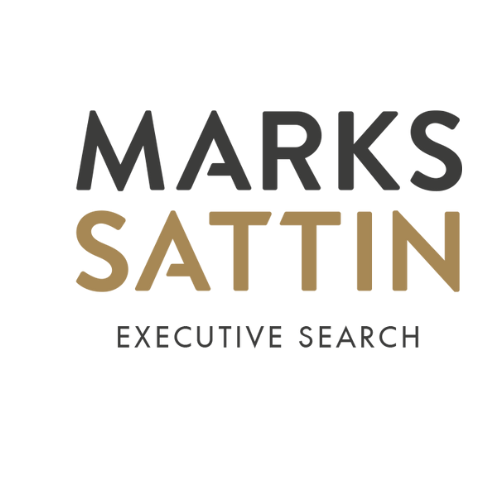Audit Senior - Banking & Alternative Finance
City of London, London
Audit Senior - Banking & Alternative Finance
- Permanent
City of London, London
The details
This vacancy has now expired.
Start your job search
Top 6 practice in London have an exciting opportunity to join the FS team, specialising in Banking and Alternative Finance, as an Audit Senior
Tasks will include:
- Assists in the planning, execution and finalisation of all areas of the audit assignment, including statutory and CASS audits, for manager or partner review, seeking input for areas of concern and judgement.
- Identifies risk matters and raises with a manager and/or partner, while exercising judgement within agreed parameters.
- Produce work for the Manager and/or Partner review clearly highlighting issues and providing potential solutions to issues identified.
- Identify and understand client needs, suggest potential solutions on technical matters and communicate and agree client needs and potential solutions with managers.
- Active engagement with senior client staff in order to gain a good understanding of their business and ensure the efficient execution of the audit
- Take primary responsibility for monitoring progress against budget, and when the actual differs from the budget then gain a full understanding for the Manager.
- Supervise, coach and develop junior members of staff within teams, on client premises and in the office.
You will have:
- Recent audit experience
- Experience in the financial services sector desirable, particularly in the areas of alternative/retail finance, asset management/funds and insurance
- Newly Qualified ACA/ICAS Qualified or overseas equivalent
- Educated up to degree level or CTS
- Experience supervising and coaching junior members of staff on site
- Working knowledge of UK and International GAAS, IFRS, UK GAAP and Financial Reporting requirements
If this interests you please apply today
Sign up for job alerts
Enter your email below to receive alerts to your inbox when similar jobs become available.
By clicking "Sign-up" below you are consenting to receive jobs to your inbox, based on the search criteria you have selected, as per our privacy policy.
Related jobs
Salary:
£150,000 - £160,000 per annum + equity, bonus and benefits
Location:
South East England
Industry
Manufacturing
Qualification
Fully qualified
Market
Executive Search
Salary
£125,000 - £175,000
Job Discipline
Private Equity Executive Search
Contract Type:
Permanent
Description
Marks Sattin Executive Search has an opportunity for a Chief Financial Officer to join a PE-backed business to provide leadership within the business
Reference
TA6031
Expiry Date
01/01/01

Author
Executive Search
Author
Executive SearchSalary:
£175,000 - £225,000 per annum + equity, bonus and benefits
Location:
City of London, London
Industry
Education
Qualification
Fully qualified
Market
Executive Search
Salary
£175,000 - £250,000
Job Discipline
Private Equity Executive Search
Contract Type:
Permanent
Description
Marks Sattin Executive Search has an exciting opportunity for a CFO to join a PE-backed Buy and Build Education Services business
Reference
TA6022
Expiry Date
01/01/01

Author
Executive Search
Author
Executive SearchSalary:
£180,000 - £220,000 per annum + equity, bonus and benefits
Location:
West Midlands
Industry
Professional Services
Qualification
Fully qualified
Market
Executive Search
Salary
£175,000 - £250,000
Job Discipline
Private Equity Executive Search
Contract Type:
Permanent
Description
Marks Sattin Executive Search is advising a PE-backed Multisite Healthcare Services business on the appointment of a Chief Financial Officer
Reference
TA 6010
Expiry Date
01/01/01

Author
Executive Search
Author
Executive SearchSalary:
£275 - £300 per day
Location:
Middlesbrough, North Yorkshire
Industry
Business Services
Qualification
None specified
Market
Professional Services
Salary
£250 - £350
Job Discipline
Part Qualified & Transactional Finance
Contract Type:
Contract
Description
Interim Finance Manager (North East)
Reference
BBBH192940
Expiry Date
01/01/01

Author
Haroon Hussain
Author
Haroon HussainRelated articles

Teaser
TechnologyContent Type
Career Advice
05/09/25
Summary
The tech industry has seen significant change in recent years, with restructuring and high-profile layoffs making headlines. But behind the headlines, the story is more complex, and more positive

by
Alex Simmons

Teaser
Commerce & IndustryContent Type
General
01/07/25
Summary
Fintech is constantly rewriting the rules on how companies operate, how businesses borrow money, and how customers pay for goods. It’s not just revolutionising transactions, it’s creating entirely new

by
Pres Pillai

Teaser
TechnologyContent Type
General
20/04/25
Summary
In the competitve UK tech landscape, securing top-tier softwared engineers is more than challenging than ever. The UK tech sector retains the number 1 spot in Europe and number 3 in the world as

by
Alex Simmons


